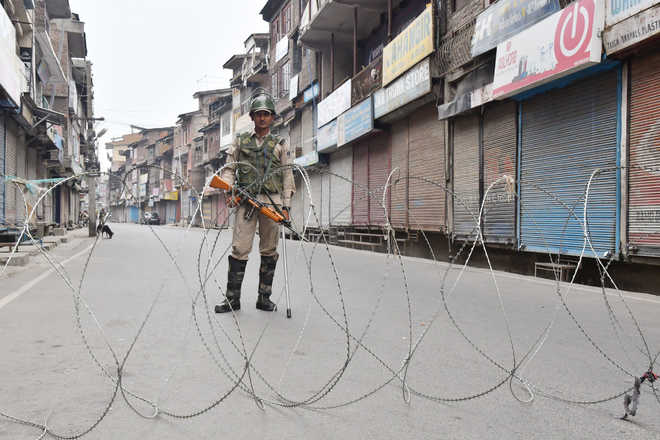
Tribune News Service
New Delhi, November 1
With the two union territories coming into existence, the Centre has assumed the authority to declare any area in Jammu & Kashmir and Ladakh as “disturbed” under the controversial AFSPA, which gives sweeping powers to security forces to act against any suspect.
In the erstwhile state of J&K, the state government through district magistrates was empowered to declare a particular district or police station area “disturbed” under the AFSPA, in which security forces can detain, search and even fire any suspect without warrant and the law gives immunity to the soldiers for such acts.
According to a government notification, the administration of the Armed Forces (Jammu and Kashmir) Special Powers Act, 1990 (21 of 1990) in both UTs is now vested with the Department of Jammu, Kashmir and Ladakh Affairs under the Ministry of Home Affairs.
AFSPA is imposed in areas where armed forces are required to operate in aid to the civil authorities. For the law to become valid, an area needs to be declared “disturbed” either by the Central or the state government under the Act.
AFSPA has been applicable to the erstwhile state since 1990. However, Leh and Kargil areas under the new UT of Ladakh were never declared as “disturbed”.
In the new administrative set-up, the MHA would be responsible for the police and law and order in both UTs, but through their respective Lieutenant Governors.
The nomenclature of the MHA wing, Department of Jammu and Kashmir Affairs has now been changed to Department of Jammu, Kashmir and Ladakh Affairs.
The notification said the Department of Jammu, Kashmir and Ladakh Affairs will be responsible for all matters relating to both UTs, including counter-terrorism within J-K and coordination with the Ministry of Defence as regards manning and managing the Line of Control between India and Pakistan, but excluding those with which the Ministry of External Affairs is concerned.
